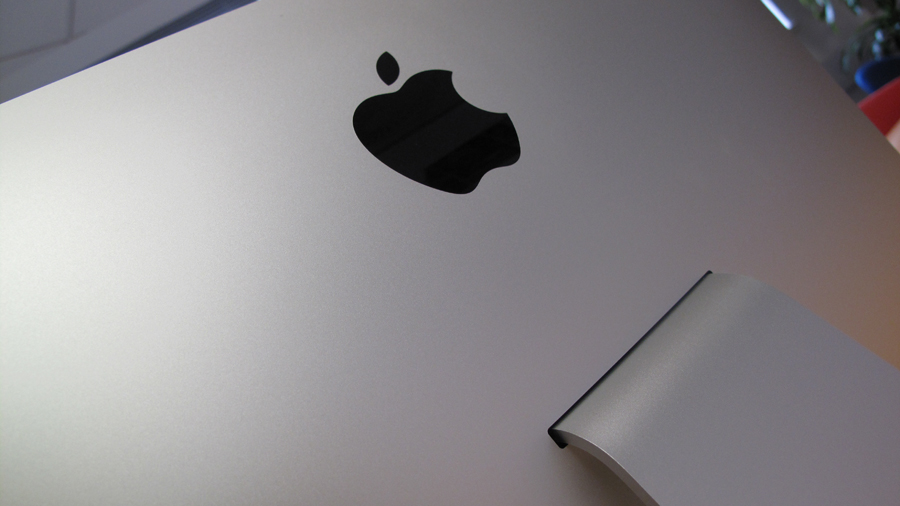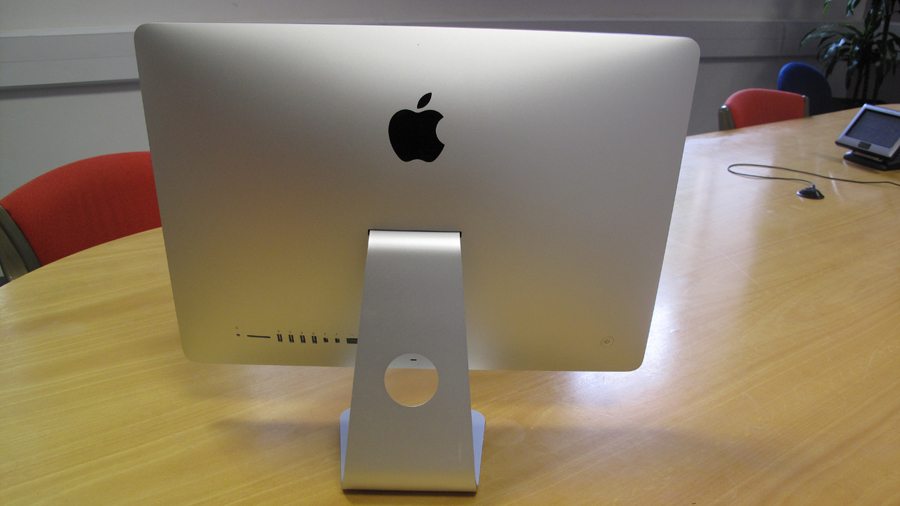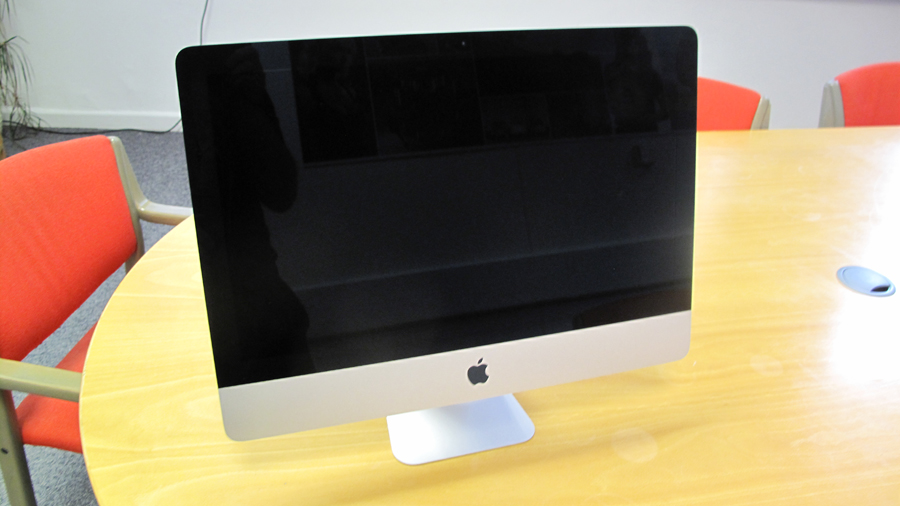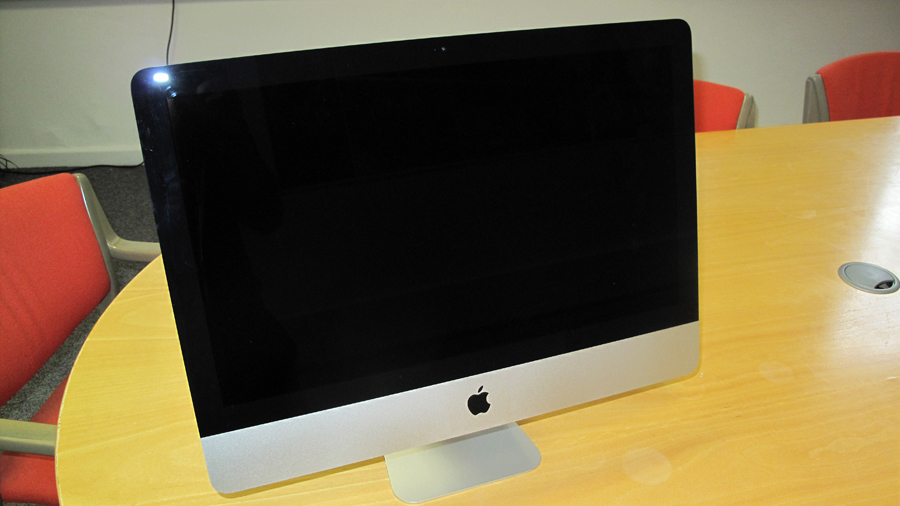Why you can trust TechRadar

Intel claims its integrated Iris Pro graphics are a match for a discrete GPU, but our tests offered mixed results. When benchmarking the first-person shooter Doom 3 on the 2.7GHz 21.5-inch iMac with Iris Pro graphics, it achieved a frame rate of 172.8 frames per second (FPS).
On its sister machine, the 2.9GHz model with an Nvidia GeForce GT 750M GPU and 1GB of GDDR5 memory it ran at 222.0 FPS, so the integrated chipset didn't perform too shabbily.
It was a similar story in our Cinebench 3D rendering test. Using all four available cores, the more expensive of the two 21.5-inch iMacs scored 8.5% higher than its cheaper counterpart. Again, the integrated chipset did not embarrass it.
But in other tests, the lack of a discrete GPU held back the entry-level iMac. Using the Unigine Heaven 4.0 benchmarking tool, the 2.7GHz model managed 9.7 FPS, against the 2.9GHz version's 19.1 FPS. Their NovaBench graphics scores were 79 and 246 respectively.
There's no doubt that the new Intel integrated graphics are far more powerful than the HD Graphics 4000 built into the Ivy Bridge processors, and the lack of a discrete GPU won't hold back your web surfing, emailing and word processing. Even so, the more expensive 21.5-inch iMac is certainly worth the extra bucks it costs, especially if you use a lot of graphics-intensive applications.

Comparing the entry-level late 2013 21.5-inch iMac with its mid-2010 counterpart shows just how far Apple's all-in-one computer has come over the last three years. The current iMac's Xbench score, which we use to measure CPU and storage performance, is over 31% higher. The Cinebench score when using multiple cores is almost 102% improved, and it encoded our five-minute test video into iPod format almost a minute quicker.
The newer iMac was over a minute slower when ripping our test CD using iTunes, but this is because we had to use an external USB SuperDrive, while the mid-2010 model had a built-in optical drive.
If you have a router that's 802.11ac-compatible, you can expect your wireless speeds to increase dramatically too. The new iMac retains the 2012 model's incredible new screen, which is fully laminated, eliminating a 2mm gap between the panel and its covering.

It also has an anti-reflective coating added using a new plasma deposition process, allowing it to be applied very thinly, for greatly reduced glare without affecting colour reproduction. The result? 75% less reflection, and deep, rich images. The iMacs' audio quality took a welcome upturn in 2012 too, and this again is retained here.
Benchmarks
iMac 21.5-inch, 2.7GHz quad core Intel Core i5 late 2013
Xbench: 152.36
Cinebench 10 Single core: 5235
Cinebench 10 Multi-core: 17592
iTunes encoding: 449.76 seconds (USB SuperDrive)
Movie encoding (iMovie): 146.49 seconds
Doom 3: 172.8 FPS
Call of Duty 4: 88.3FPS
Battery: N/A
Unigine Heaven 4.0, FPS: 9.7
Unigine Heaven 4.0, Score: 244
NovaBench, Score: 736
NovaBench, Graphics: 79
iMac 21.5-inch, 2.9GHz quad core Intel Core i5 late 2013
Xbench: 183.63
Cinebench 10 Single core: 5900
Cinebench 10 Multi-core: 19088
iTunes encoding: 451.8 seconds (USB SuperDrive)
Movie encoding (iMovie): 128.12 seconds
Doom 3: 222.0 FPS
Call of Duty 4: 88.6 FPS
Battery: N/A
Unigine Heaven 4.0, FPS: 19.1
Unigine Heaven 4.0, Score: 480
NovaBench, Score: 955
NovaBench, Graphics: 246
